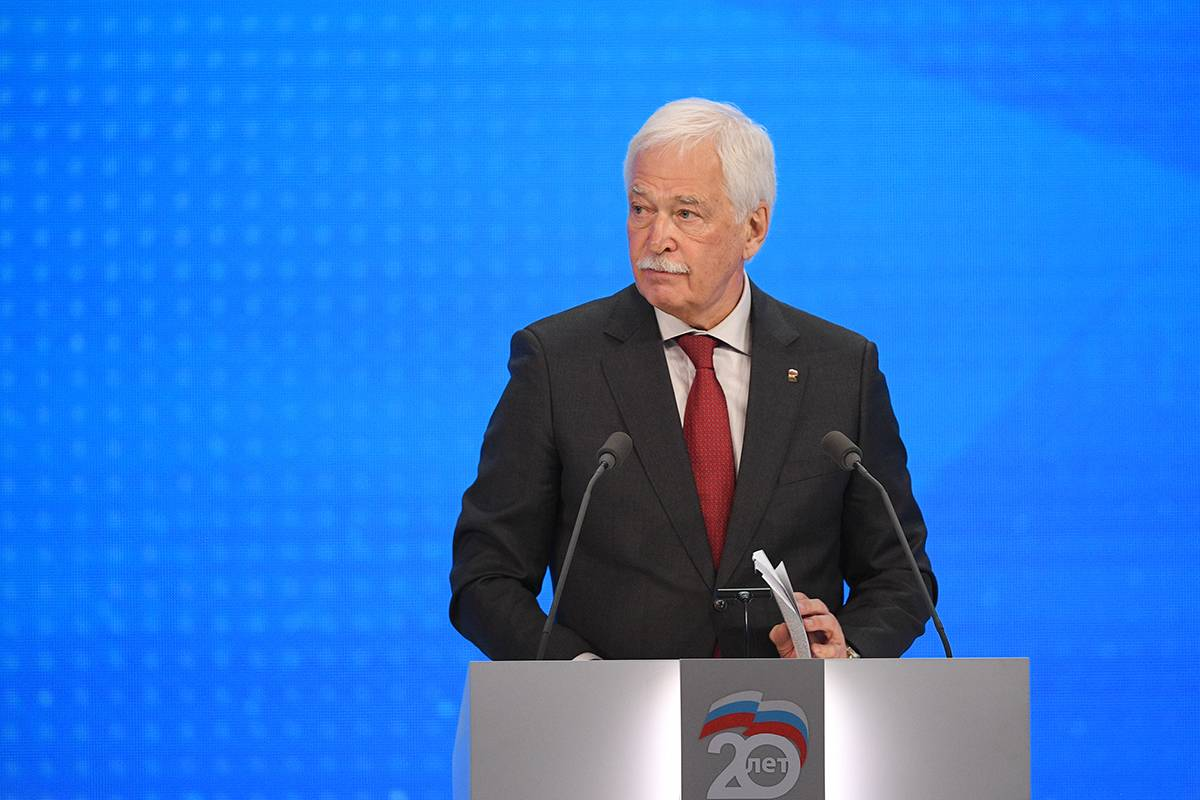A new stage of the relationship? Let’s start with donation and safety
 The situation got worse
The situation got worse

The main agenda is formed by the Russian side, sending threats to NATO and Western countries and presenting Belarus as a passive party to allied relations. The appointment of a new ambassador marks the beginning of a new phase in the Belarusian-Russian relationship.
Moscow, through the press secretary of the Ministry of Foreign Affairs, threatened that it would respond with adequate measures to the hostile actions of the West. On December 24, commenting on the issue of the possible deployment of nuclear weapons in the country (which Lukashenka previously transparently hinted at), the representative of the Russian Foreign Ministry, Maria Zakharova, recalled that this topic arose “due to the continuation of hostile actions of NATO countries, to which the Russian leadership said that if all this continues, then such actions, hostile, unfriendly, aggressive, will be followed by an adequate response, including military-technical.”
This is a private continuation of the ultimatum put forward by Russia on December 17 to the United States and NATO, but it does not seem that the Kremlin is really thinking about entrusting Alexander Lukashenka with a nuclear button. Rather, it is a signal to the West in the style of Russian minister of foreign affairs Sergei Lavrov: Belarus is “our business”, do not interfere.
This is not an easy matter, as Vladimir Putin reminded, prefacing the meeting with Lukashenka announced for December2-9. “I must say that Alexander Grigoryevich and his entire team are not easy negotiators,” he said, noting, however, that in general, an understanding has been reached on how and where to move further. The Russian president also complained that the level of integration in the Union State “is still much lower than the level of integration in the European Union, simply incomparable.” Because of this, we are not even talking about a single currency yet, and the task is to synchronize tax, customs and business legislation. Putin’s slight frustration contrasts somewhat with Lukashenka’s optimism that the new union will be more advanced and stable than the EU.
At first glance, the Kremlin is more realistic about integration than Minsk, but on the other hand, what is more realistic – to synchronize and harmonize with the side headed by Lukashenka, or just to allocate him a few billion dollars of credit resources?
For the second time in a year, Russia suddenly changes its ambassador in Minsk. The place of the current representative of the Russian Federation in Belarus Yevgeny Lukyanov will be taken by Boris Gryzlov, the plenipotentiary Russian representative in the contact group on the settlement of the situation in Ukraine, a permanent member of the Security Council of the Russian Federation, the chairman of the Supreme Council of United Russia, etc. This is the fourth Ambassador to Belarus over the past 2.5 years. None of them was a career diplomat.
“A career officer with a Chechen past Babich, a political strategist Mezentsev, a banker Lukyanov – any of these persons arrived in Minsk exclusively with a special task. What will the new one’s taks be – the one of the ex-Minister of Internal Affairs and ex-Speaker of the State Duma Boris Gryzlov?”, – the Belarusian publication Reformation asks. Gryzlov’s appointment predictably gave rise to a flurry of new conspiracy theories, but, contrary to predictions about “integration exacerbation” and “political heavyweights” capable of providing this aggravation properly, the experts of the publication are inclined in favour of the version of the “honorary pension” for Gryzlov. Gryzlov has no special task. Belarus has nowhere to run from integration, and all global problems of Russian-Belarusian relations are being solved at the level of Lukashenka – Putin.
Be that as it may, the appointment of the ambassador marks a kind of new stage in allied relations, and recent events testify to the fact that the Kremlin has matured and condensed the understanding that the problems of these relations cannot be solved by a single constitutional referendum. What Lukashenka previously offered to Russia (and successfully sold to the citizens of his country). – protection from external enemies, stability and security – he himself must buy from it.
Subscribe to our newsletter




Situation in Belarus
Constitutional referendum: main consequences


 Video
Video
How to count the political prisoners: are the new criteria needed?


 Video
Video
Paternalism In Decline, Belarusian Euroscepticism, And The Influence Of Russia


 Video
Video












